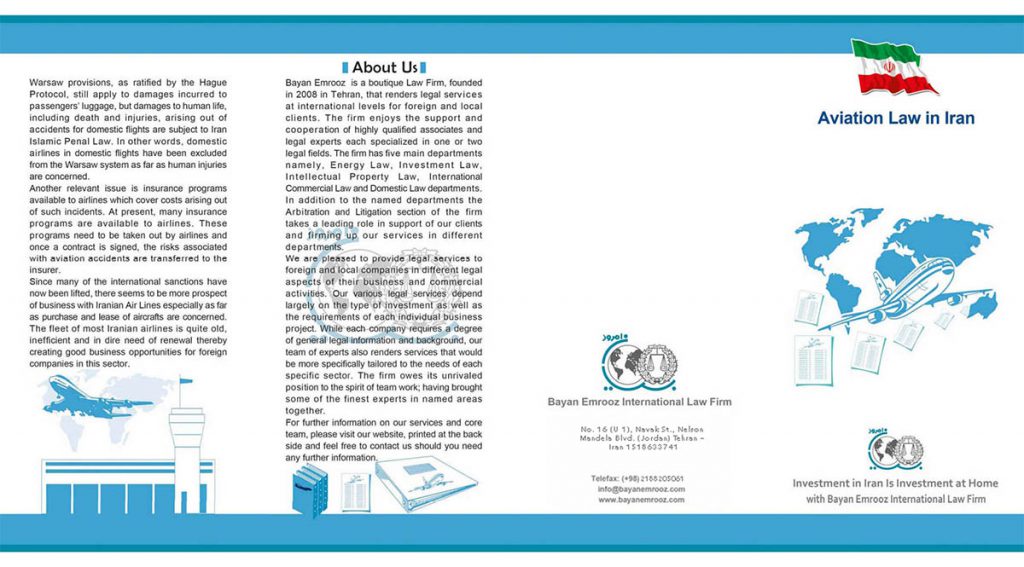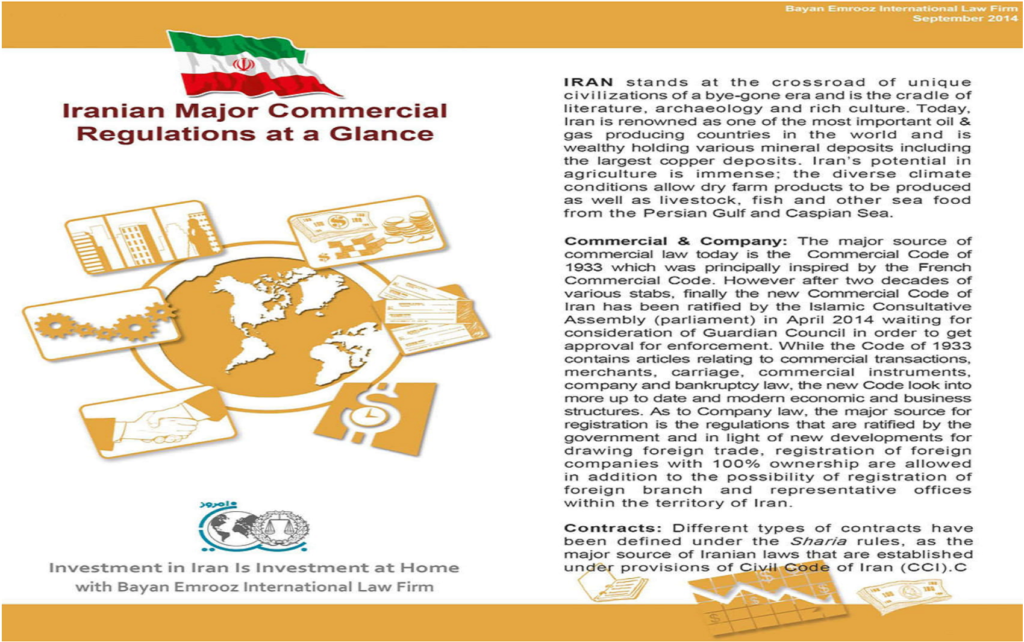It would be impossible to enter any aspect of domestic or international commerce such as agency, import, export, brokerage and commissioning, unless the needed human resources are supplied. A valid concern of capital owners, and of course a potential problem of investors, is skillful management of employer-employee relations with assistance of an experience employment attorney which would enable them to make use of skilled, seasoned workforce and minimize risks arising from financial rights of employees, insurance, work accidents, dismissal of workforce and etc.
Therefore, one of the essential and important aspects of doing investment in Iran is being aware of Iranian labor and employment laws and doing affairs in accordance with them. It should be noted that most of the legal issues concerning employer-employee relationships are governed by the Labor Act which was ratified in 1990, however, there are also some other laws and regulations such as Social Welfare Act, which obliges employers to insure employees, the Law regarding Iranian Administrative Justice Court, etc. that help create the labor legal system of Islamic Republic of Iran.
In order for every private business to employ an employee, it is necessary to conclude an employment agreement. The expression “employment contract” means a written or verbal agreement based on which a worker undertakes, in return for remuneration, to perform work for an employer for a definite or an indefinite period of time.
As regards the term of the agreement, it should be noted that employment contracts for noncontiguous jobs can be concluded for a specific term. However, as for continuous jobs, if the contract is not limited by term, it shall be treated as a permanent contract. Therefore, it is crucial to make a distinction between different natures of the work in terms of continuity.
Furthermore, as most employer to employee obligations such as the salary, working hours per day, holidays, insurance of employee, etc. are set to support the employees, they are mandatory and any agreement against them, is null and void. In this regard, it would not be possible for the employer to change the title of the contract in order to avoid the mandatory provisions in this regard.
According to the regulations, the essential parts of any employment contract that must be addressed in the agreement are as following:
- Type of work or occupation in which the worker will be engaged or the duties that he must discharge
- Basic salary and any supplements thereto;
- Working hours, holidays and leave;
- Place of work
- Date of signing of the employment contract;
- Conditions for termination of employment contract.
- Duration of the contract, if it is for a fixed term;
- Any other matters required by custom and common practice in relation to the job and the locality concerned.
In addition, an employment contract shall be terminated by any one of the following events:
- Death of employee
- Employee retirement;
- Employee total disability;
- Expiry of the period specified in an employment contract concluded for a fixed term and its nonrenewal, either explicit or implicit;
- Completion of work under a contract concluded for a specified assignment;
- Employee resignation;
- Termination of employment contract as agreed in the agreement;
Partners and labor lawyers at Bayan Emrooz International Law Firm can assist investors by offering comprehensive employers’ packages, consultation, drafting contracts, participation in dispute resolution commissions, procuring work licenses and securing residence/work permits for foreign employees.













